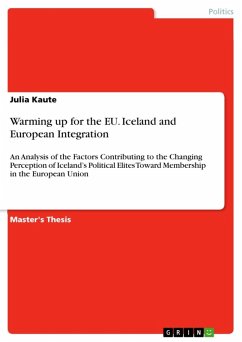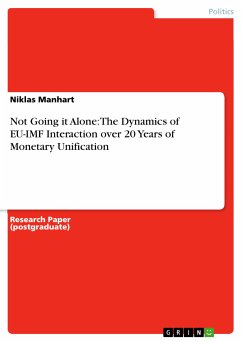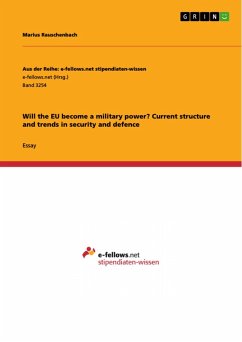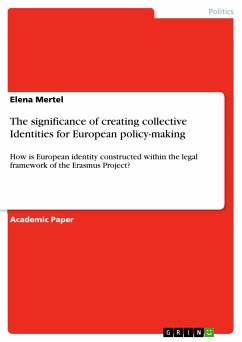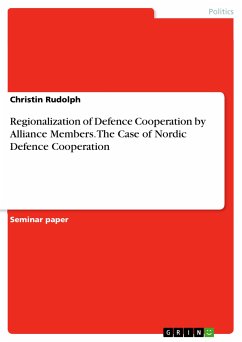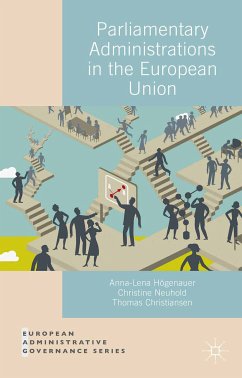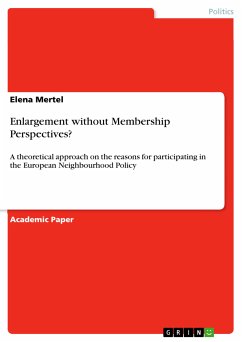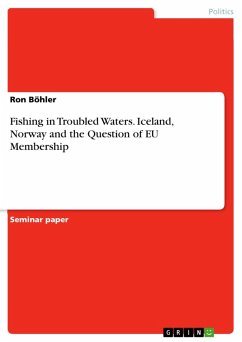
Fishing in Troubled Waters. Iceland, Norway and the Question of EU Membership (eBook, PDF)
Sofort per Download lieferbar
Statt: 17,95 €**
13,99 €
inkl. MwSt. und vom Verlag festgesetzt.
**Preis der gedruckten Ausgabe (Broschiertes Buch)
Alle Infos zum eBook verschenkenWeitere Ausgaben:

PAYBACK Punkte
0 °P sammeln!
Seminar paper from the year 2010 in the subject Politics - Region: Western Europe, grade: 1.3, Free University of Berlin, language: English, abstract: This study assumes the validity of liberal intergovernmentalism (LI) theory and follows Ingebritsen's sectoral approach. The thesis under investigation is formulated as follows: While the fishing industry in Norway constantly succeed in intervening in national policy-making towards European integration, Icelandic fishermen lost access to governing parties after the sudden change of government in 2009. Consequently they failed to prevent the gove...
Seminar paper from the year 2010 in the subject Politics - Region: Western Europe, grade: 1.3, Free University of Berlin, language: English, abstract: This study assumes the validity of liberal intergovernmentalism (LI) theory and follows Ingebritsen's sectoral approach. The thesis under investigation is formulated as follows: While the fishing industry in Norway constantly succeed in intervening in national policy-making towards European integration, Icelandic fishermen lost access to governing parties after the sudden change of government in 2009. Consequently they failed to prevent the government from filing the EU membership application. Iceland and Norway have traditionally been referred to as "outsiders" or even "outliers" in the process of European Integration (Miles 2005). While Iceland had not applied for EU membership until 2009, the Norwegian public rejected the country¿s accession twofold in a referendum, first 1972 and again in 1994. Since the mid-1990s, both states have nevertheless been highly affiliated to the EU project through their participation in the European Economic Area (EEA). Additionally, both countries experienced similar developments concerning political representation since 1994, with long-serving Eurosceptic center-right governments, which were replaced by pro-European center-left governments after the turn of the millennium. The electorate in Norway brought a coalition government of Labor, Socialists and Center Party to power in 2005, which was reelected four years later. In Iceland, a coalition of social democrats and Left-Green Movement replaced the conservative government in 2009. How did it come that Iceland for the first time in history applied for EU membership after the change in government while Norway did not?
Dieser Download kann aus rechtlichen Gründen nur mit Rechnungsadresse in A, B, BG, CY, CZ, D, DK, EW, E, FIN, F, GR, HR, H, IRL, I, LT, L, LR, M, NL, PL, P, R, S, SLO, SK ausgeliefert werden.




